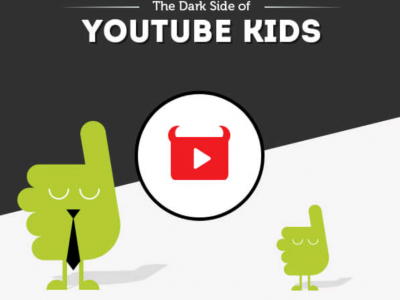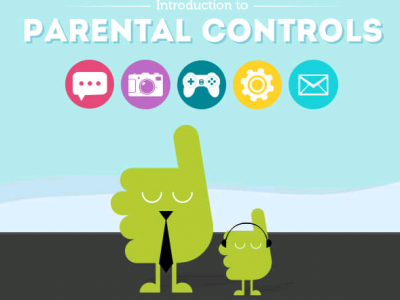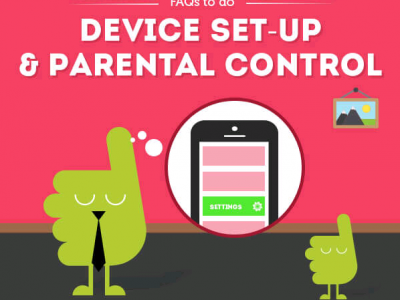It’s coming to the end of summer and that means there’s lots of change on the horizon, as students across the country head back to the classroom. So, whether you’re sending yours off on their first day of secondary school or you’re hitting the books yourself, we’ve got some top tips for buying a new mobile. From first phones to the latest models, we’ve studied up on the best picks for staying connected.
Going off to big school for the first time brings a fresh batch of challenges and a new sense of freedom. Your kids are growing up, they’ll become more and more independent. Going off on their own, travelling further, hanging out with friends – there are plenty of reasons to keep a phone handy so you can check in at any time.
What to keep in mind
What do they need?
As they get older, your kids will probably want the latest models with tons of social media features. Luckily, these smartphones are well worth the cost, since they include a few handy apps like maps, music, and digital tickets for buses or trains. An everyday mobile comes with all this, alongside the usual calls and texts, so that’s another load off your mind. Plus, you can grab one for cheaper by buying a refurbished phone – bonus!
Contracts for teens
There are a couple of extra things to keep in mind when it comes to contracts for older kids. They’ll probably be using their phone more often to chat to their friends, keep up with social media and play games. That’s why a plan that includes data might be a good option. We’d recommend around 10-15GB per month. It’s also worth looking into contracts that offer unlimited data for social media – that way you get the best of both worlds without the sky-high bills.
Get a data cap
If you go for a contract, you’ll need to remind them that data should only be used when there’s no WiFi, because costs can spiral out of control really quickly. Luckily, most networks offer a data cap. They make sure your teens don’t go over their limit, and most networks have these options available.
Limit what your teen can access
With a new phone comes new issues for parents – staying up late scrolling through newsfeeds, streaming shows under the covers, playing games ‘til the wee hours. Mobiles can do a lot more these days, so it’s handy to know what your teens are up to. Luckily, plenty of models let you set limits on screen time. So, when it gets to bedtime, they won’t be able to sneak it under their pillow and carry on browsing YouTube. You can also filter the content they have access to, check on apps before they’re downloaded, and even keep on eye them with GPS.
Reduce app store spending
Make sure to keep your card details off your teen’s app store, as they could end up making in-app purchases or signing up to subscriptions, without fully realising how much they’re actually spending. A lot of games make it easy to splash cash around, so it’s a good opportunity to have a chat about money management.
Online safety
Now comes the serious stuff. Staying safe online is a really important topic, and one you should have a frank and honest conversation with your teen about. From cyber-bullying to exploitation, there’s a lot to be aware of. Make sure your child understands how to interact with people on social media, what red flags to look out for, and how to keep their passwords secure. And it’s important to let them know that you’re always there for a chat if they come across something that makes them uncomfortable – it’s best to tackle these issues together.
Apps for secondary school
As well as keeping in touch, there are lots of ways a smartphone can help your teen with school (as long as they don’t get it out in class)
- Google Docs
Google Docs is great way to manage homework, since it lets them save documents to the cloud and edit them on multiple devices wherever there’s an internet connection – no more excuses for missed deadlines. All they’ve got to do is log in with their email and everything will be waiting. The best bit is that it’s free, so it’s a good alternative to Microsoft Office.
- Duolingo
If they fancy doing a little extracurricular language work, Duolingo lets them learn foreign vocabularies outside of school. It’s got lots of easy-to-follow activities that teach them practically, with bite-sized classes on grammar, pronunciation and listening skills. It’s a sure-fire way to impress in their next French lesson.
- Quizlet
For revision sessions when exams are coming up, Quizlet is ideal. It lets them create virtual flashcards to test their knowledge, as well as quizzes and games to make study sessions more fun (no, this isn’t a pitch – it really is fun!)
- Hemingway
When it comes to longer essays and coursework, presentation really matters. Luckily, Hemingway is a free app that can help with everything from grammar to sentence structure, and even tells them how easy a piece is to read. It’ll suggest words and phrases that might be a better fit, and has an easy-to-follow scoring system so you can see how your writing flows. They’ll nail that next report on Romeo and Juliet.
Whether you’re a fresh-faced first timer or a mature student heading back to school, you’ll want the latest smartphone to help keep up with the buzz of a busy campus. Make late-night library sessions fly by with a chill beats playlist, add all your friends on social media, and call home to let them know you’re OK. You really can’t go wrong. And if you’ve nabbed a part-time job in between lectures, you might fancy rewarding that hard work with a top-tier mobile.
What to keep in mind
Get a great deal with everything you need
With that tempting student loan in your bank and possibly a few part-time shifts at the weekend, a high data contract with loads of features might look awfully nice. But it’s always best to budget and only buy what you can realistically afford – you’ve still got to buy food, after all! If your expenses allow it, go for it. Otherwise, consider a cheaper option and maybe stick to WiFi if you’re not up for living on noodles. Make sure to take a look at how much data you usually use, and remember that the library, campuses and even bars usually have free wireless.
Save some cash with a refurbished phone
If your budget can’t quite stretch to a new smartphone, don’t worry. We’ve got plenty of refurbished mobiles available. We do our very best to make sure they’re as good as new and ready to go, meaning you can have the latest phone at a much lower price. That helps keep costs down, and you still end up with a brilliant smartphone.
Limit your screen time
It’s never a good idea to stay up all night, even if it’s to finish an essay in the library. It’s even worse if you’re using that time to scroll through social media when you should be studying. Keep yourself fresh, well-rested, and ready to tackle your next lecture by limiting your screen time. Just go into your phones settings and tell it when you’re done for the day. Most brands make this really easy with special dashboards and features, so you can get a good night’s rest.
Stay safe on and off campus
There’s no doubt that parents worry when their kids go off to uni for the first time. So if you’re comfortable, you can turn on your smartphone’s location so they know where you are and that you’re safe. And you can also do this with your mates too, especially if you’ve settled into halls and made some new friends. That way, you can look out for each other and keep track of people on those mad weekends out.
Handy apps for students
- Voice recording
If you’re serious about your studies, most smartphones have some kind of audio recording app, meaning you can set your mobile down on your desk and make a digital copy of lectures to review later.
- RefMe
When it comes to big essays and coursework, you’ll need to make sure your references are correct. That’s where RefMe comes in. All you’ve got to do is scan a book’s barcode with your phone’s camera and it’ll automatically create a reference for you in your school’s format. That’s one less headache!
- Office Lens
Now, Office Lens is a really clever tool no student should be without. It’s a Microsoft app that turns pictures of notes, books, whiteboards, you name it, into editable text documents. It’s a great way to digitise your work and keep a backup of important files.
- SimpleMind
SimpleMind is another useful app for getting your thoughts down on paper. It helps you organise your thoughts and notes by letting you create digital mind maps – perfect for remembering info and coming up with new ideas.
- UrSafe
Similar to a smartphone’s location feature, UrSafe is a handy app that lets you track friends and family on a digital map in real time. That means you’ll always be up-to-date with where your flatmates are, and you can send live video feeds to another phone. What’s more, the built-in SOS signal alerts a dedicated contact if you’re ever in trouble.
- BigOven
Last but not least (and arguably the most important one) is BigOven. This app is a lifesaver – really! It can help make your food budget stretch even further by suggesting tasty recipes that are quick and easy to make. Just plug your ingredients into it and it’ll give you a step-by-step plan, offer suggestions, and even generate a shopping list. It really is essential for students.
While it might seem a bit early to think about buying your child a phone, there are plenty of practical reasons for primary schoolers to have their own mobile – especially if they’re staying at after-school clubs, playing out, or if there’s an emergency.
What to keep in mind
They don’t need an all-dancing phone
At this age, they won’t need a top-end model with the latest features, or a long contract loaded with perks. These cheaper mobiles not only save you some cash (especially helpful if they’re lost or damaged), but they also mean you can check on your little mischief-makers with a call or a text. It’s safer for them, and a little extra peace of mind for you. We’d recommend a traditional brick phone, or a simple smartphone to get the job done.
Rolling SIMs keep things simple
We know kids can be clumsy and prone to accidents. That’s why a longer contract is probably a bad idea – you don’t want to be replacing it every other week. No parent needs that extra headache. We offer rolling 30-day SIMs that cover the basics, and can be cancelled at any time. Then you aren’t left out of pocket if anything happens. You can pop these into a new phone or a second-hand model (as long as they’re unlocked to any network), so it’s easy to sort out.
Keep your bank details off app stores
Of course, with a new smartphone, there’s no getting away from app stores. While there are plenty of free and fun games to keep the kids occupied, there’s always a risk of little fingers racking up huge bills as they tap away willy-nilly. From in-app purchases to subscriptions, you’re only one click away from bank statement shock. That’s why it’s a good idea not to store your card details on any accounts your kids have access to.
Wipe your old phone
You don’t always have to spend a lot to keep your little tykes safe – you can opt to give them an old phone of yours. That way, you save money and do your bit for the environment. Great! But before you hand over a pre-loved mobile, always make sure to completely wipe it so none of your data or details are left behind – you don’t want anyone snooping if it gets lost. You can do this by finding the factory reset option in your phone’s settings menu and following each step on-screen. Easy-peasy.
Consider a data cap
Caps! No, not the Spider-Man one your kids wear on sunny days. We’re talking spending and data caps. It’s a good idea to set limits on the amount of money and data the phone can use so they don’t end up chewing through your monthly budget in 2 seconds. With a simple SIM contract, they won’t need data to call or text, and most networks let you manage spending with a few taps.
Educational apps to download
If you do go for a simple smartphone, both iOS and Android models have a bunch of educational and fun apps to download. We’ve got a few suggestions to get you going.
- Monkey Math
Monkey Math is full of colourful characters and exciting challenges that’ll take the kids through the basics, helping them build their skills with over 10,000 activities. What’s more, there’s a 7-day free trial that lets you try before you buy! Bargain.
- Little Alchemy
If you’ve got a little puzzle master on your hands, then Little Alchemy is definitely one to look out for. They’ll start with 4 basic elements and mix them together to create new combinations. They’ll then use these concoctions to find dinosaurs, unicorns, and even spaceships! Basically, everything that kids love.
- Epic
After something a little bit calmer? Epic: Kids’ Books & Reading might be more your speed. It’s a literacy app filled with 40,000 books and videos to get your kids reading more. There are loads of options that let them go at their own pace, build confidence, and let you track their progress. And it’s great for rainy weekends, since it has audiobooks that’ll tell tales to them. Perfect.
Trade in your old phone
Fancy getting some cash for your old phone? We offer a trade in service. Find out more about it here.
So, there you have it – our handy guide to all things smartphones, from primary school all the way up to university. We’ve covered top tips on which apps to download, how to save some cash with a contract deal or a refurbished model, and staying safe. There’s plenty here to help you pick the right mobile.







